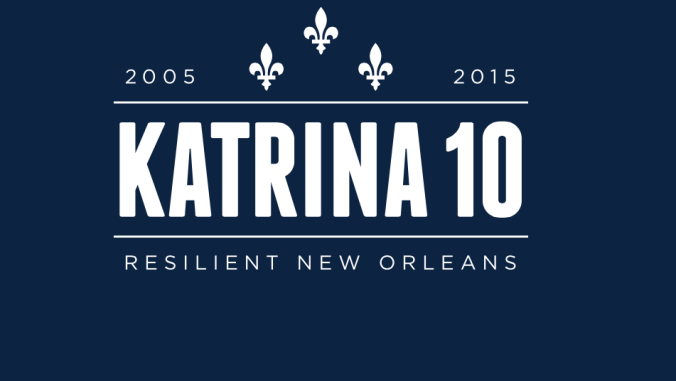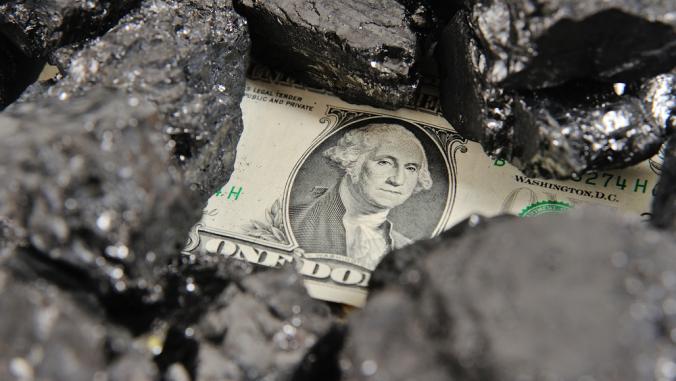5 questions that will make or break a Paris climate deal
From the uncertain future of energy to a few hard-to-ignore obstacles, the second week of the United Nations COP21 climate talks will come down to the wire.

PARIS — Week two of the United Nations COP21 climate talks is officially underway in the French capital, following weekend developments that ushered in a new phase in negotiations over how to respond to increasing global temperatures.
A draft climate agreement has emerged with initial backing from more than 200 countries — a feat in and of itself that was never accomplished at the famously ineffectual 2009 Copenhagen climate talks.
The stated goal of the COP21 gathering in Paris is to limit global average temperature increases to a maximum of 2 degrees Celsius. The stakes are high; academics and government researchers warn that continued growth in the greenhouse gas emissions that fuel climate change could unleash irreparable harm through extreme weather and resource scarcity, jeopardizing both individual lives and the supply chains that bolster the global economy.
As U.S. Vice President-turned-climate activist Al Gore said Monday at a Paris meeting of the World Business Council for Sustainable Development, the sense of urgency belied by destructive events like the current flooding in the Indian city of Chennai could even be described in biblical proportions.
"This is the acceleration of the climate crisis," Gore said. "It’s like a nature hike through the book of Revelations."
Meanwhile, more businesses are joining the slew of multinational corporations that have committed to new goals around carbon emissions, clean energy investment, environmental disclosure and other issues in the run up to COP21. The New York Times reports that executives from companies including Unilever, Virgin, Harley-Davidson and L'Oreal on Sunday endorsed the goal of eliminating greenhouse gases altogether by 2050.
The sentiment is particularly notable since preliminary analysis of national carbon reduction targets shows an outcome much higher than a 2-degree temperature increase, let alone the 1.5-degree threshold backed by more vulnerable countries.
"This is the acceleration of the climate crisis. It’s like a nature hike through the book of Revelations." - Al Gore
As they say, however, the devil is in the details. It may sound clichéd, but that old aphorism speaks volumes as to what's at stake in Paris, where huge gaps remain in the draft climate agreement currently under review.
The key word for businesses grappling with what a climate deal may mean for their operations: certainty — not just about the potential for new regulatory burdens, but also whether investment strategies in clean energy or natural capital would be somehow rewarded or supported by future policies.
"What is happening here is fundamental for the future," said John Woolard, vice president of energy at Google, at Sunday's World climate Summit conference in Paris. "Business needs clarity and certainty. The ambiguity that exists is worse than probably anything."
1. Where to from here on fossil fuels?
From solar-powered hearing aids to financing for utility-scale clean energy projects, there has been no shortage of conversation about the future of renewable energy at COP21.
What could undercut those efforts in a big way is a continued failure among most governments to take a decisive stance on burning fossil fuels.
Previous UN gatherings have surfaced tension over whether developing nations should enjoy the same access to cheap brown energy that Western economies have translated into industrial wealth. Accusations of hypocrisy persist, but environmental advocates and delegates from some developing economies are now calling for unity on a timeline for phasing out fossil fuels — ostensibly leveling the playing field for countries in Latin America, the Caribbean, Africa and Asia pursuing rapid expansion of clean energy.
Still, several major flash points in the debate over climate action, such as a global carbon pricing system or the fate of astronomical subsidies for oil, gas and coal, are unlikely to be neatly reconciled in the next five days.
That hasn't stopped advocacy groups and sustainability-focused business leaders from weighing in on the need for more aggressive policies.
“I have three airlines, and we’re saying there should be a tax on carbon,” said Richard Branson, the famously green billionaire owner of the Virgin conglomerate, at an awards ceremony hosted by environmental think tank Sustainia on Sunday in Paris. “If carbon is taxed, then there will be a revolution for clean energy.”
2. Can high- and low-tech work together?
In a marked shift from old school corporate environmentalism that's often oriented around conservation or pollution prevention, the expansion of clean technology has brought the lexicon of Silicon Valley — disruption, innovation and the like— to sectors including energy, transportation and city planning.
While it's easy to get carried away with the potential implications of autonomous electric vehicles or novel renewable energy storage technologies, several "lower-tech" sectors remain huge sticking points for climate mitigation.
Agriculture, forestry and mining — all essential supply chain functions for industrial and consumer companies in a range of industries — represent perhaps the most imminent examples of deeper supply chain dysfunction that must be addressed to drastically reduce carbon emissions.
“I have three airlines, and we’re saying there should be a tax on carbon." - Richard Branson
Take the example of deforestation. Once the realm of treehuggers, the issue has bubbled up with activists decrying the decimation of rainforests that function as carbon sinks in the pursuit of commodities like palm oil.
Two companies already lauded for their sustainability efforts, Unilever and Marks & Spencer, last week signed onto a new declaration of the pursuit of deforestation-free products. As the Rainforest Action Network points out, though, such commitments must include stringent accountability mechanisms and be tailored to local geographies.
"There is a risk that these pledges from governments and brands will amount to nothing but lip service," Ginger Cassady, the action network's forest program director, said in a statement.
3. Will the public and private sectors connect the dots?
The first week of COP21 was a blur of press releases pledging all manner of climate actions, financial and otherwise.
But how do those commitments square with lofty rhetoric emerging from government quarters?
Take the realm of climate finance. Developed nations have already pledged to help foot a large chunk of the bill for climate change mitigation in poorer countries, which hasn't yet materialized.
"Governments from the industrialized world did promise to mobilize $100 billion," said Edward Cameron, policy lead on the We Mean Business Coalition. "That becomes a problem of trust within the negotiations."
Meanwhile, familiar figures on Wall Street, like Goldman Sachs, Bank of America and JP Morgan Chase, are announcing $100 billion-plus set asides for clean energy and low-carbon investments. Whether or not those private funds could work in tandem with capital needs of individual countries (preferably not in the form of high-interest loans) remains to be seen.
“There’s no common metric that shows it's going to the right place," said Katherine Garrett-Cox, CEO of UK investment services firm Alliance Trust, of private sector financial pledges, at the WBCSD conference.
Weeding through the onslaught of financial commitments is imperative, added Christopher Knowles, head of the climate change and environment division of the European Investment Bank. “There are something like 80 different initiatives trying to chase finance for clean energy in Africa," Knowles said at the World Climate Summit on Sunday. "That’s probably about 70 too many.”
4. Is U.S. political dysfunction contagious?
What do the European Union, sustainable business lobbyists and indigenous peoples’ advocates have in common? Members of all three groups have called for a global climate accord that would legally hold individual governments accountable for hitting carbon emissions goals.
One notable institution that has balked at a binding agreement: The U.S. government.
It’s no secret that the United States is home to a uniquely powerful political block of climate change deniers, but now that internal dysfunction threatens to throw off the entire calculus behind an unprecedented global climate deal.
No doubt sensing this friction, President Barack Obama during his remarks in the opening days of the talks looked to shift the emphasis to reinforcing the protocol for re-upping national climate commitments in years to come.
"Although the targets themselves may not have the force of treaties — the process, the procedures that ensure transparency and periodic reviews — that needs to be legally binding," Obama said. "And that's going to be critical in us having high ambitions and holding each other accountable."
It is also well worth noting that is supremely unclear how a "binding" global agreement would actually be enforced.
5. What’s next?
Given the friction over what parts (if any) of a Paris climate deal would be legally binding, focus has turned to what sorts of accountability measures could be built into an agreement.
One hope is a so-called "ratchet mechanism" that would require climate negotiators to come back to the table periodically to discuss increasingly ambitious goals.
At the World Climate Summit on Sunday, speakers urged business leaders in attendance to lobby for a review period no longer than five years, rather than a waiting time as long as the year 2025 or 2030 being floated around the Le Bourget negotiation site.





